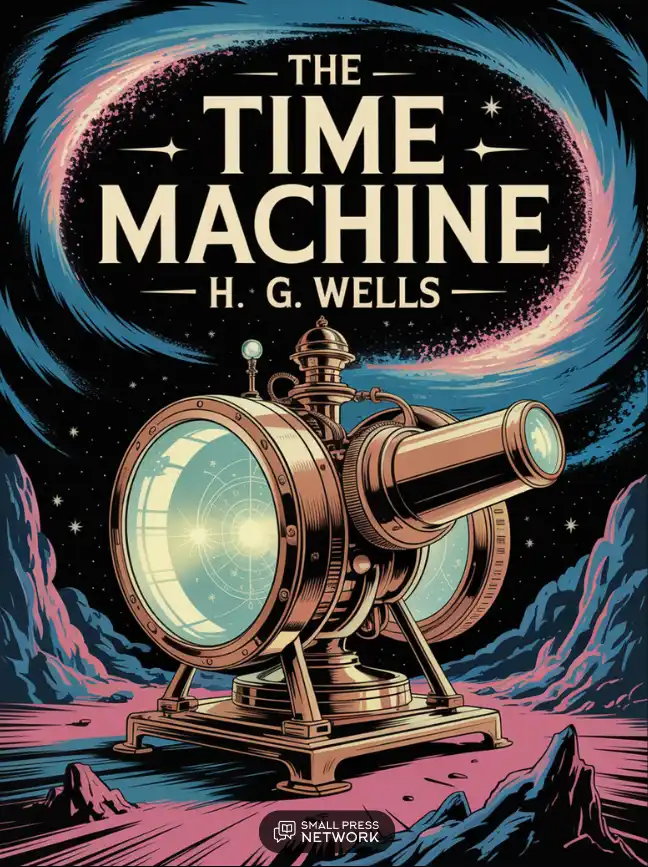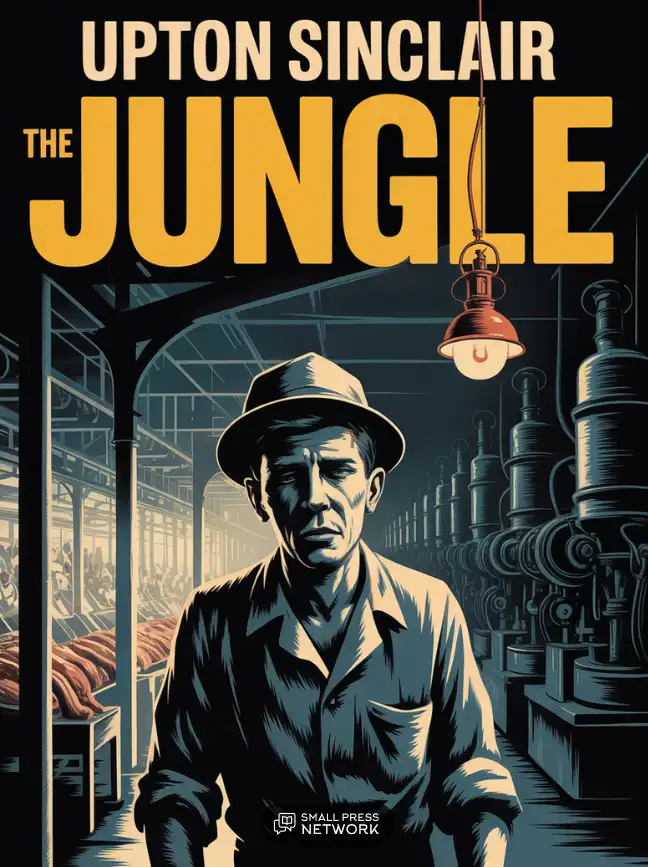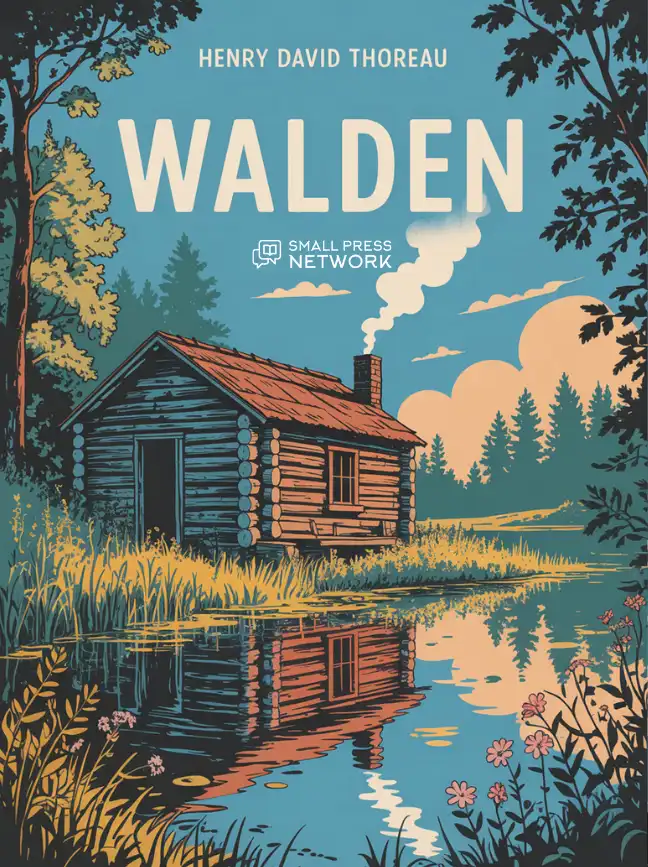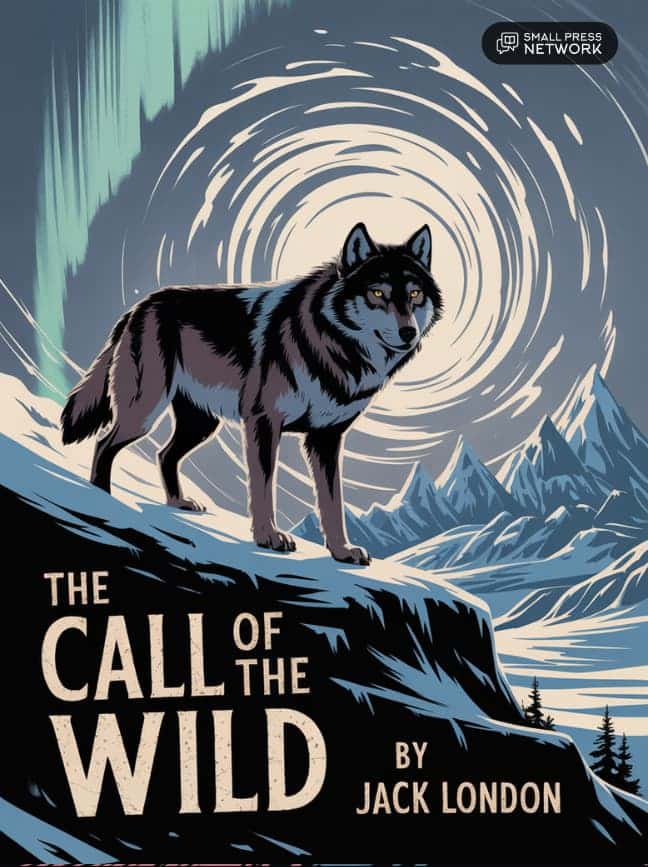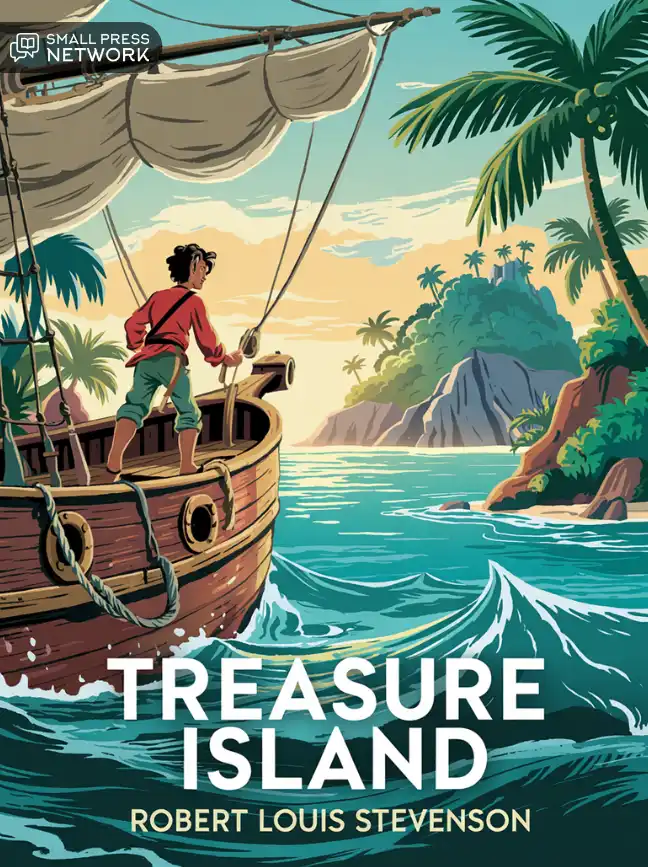CHAPTER 4
'In another moment we were standing face to face, I and this fragile thing out of futurity. He came straight up to me and laughed into my eyes. The absence from his bearing of any sign of fear struck me at once. Then he turned to the two others who were following him and spoke to them in a strange and very sweet and liquid tongue.
'There were others coming, and presently a little group of perhaps eight or ten of these exquisite creatures were about me. One of them addressed me. It came into my head, oddly enough, that my voice was too harsh and deep for them. So I shook my head, and, pointing to my ears, shook it again. He came a step forward, hesitated, and then touched my hand. Then I felt other soft little tentacles upon my back and shoulders. They wanted to make sure I was real. There was nothing in this at all alarming. Indeed, there was something in these pretty little people that inspired confidence—a graceful gentleness, a certain childlike ease. And besides, they looked so frail that I could fancy myself flinging the whole dozen of them about like nine-pins. But I made a sudden motion to warn them when I saw their little pink hands feeling at the Time Machine. Happily then, when it was not too late, I thought of a danger I had hitherto forgotten, and reaching over the bars of the machine I unscrewed the little levers that would set it in motion, and put these in my pocket. Then I turned again to see what I could do in the way of communication.
'And then, looking more nearly into their features, I saw some further pe- culiarities in their Dresden-china type of prettiness. Their hair, which was uniformly curly, came to a sharp end at the neck and cheek; there was not the faintest suggestion of it on the face, and their ears were singularly minute. The mouths were small, with bright red, rather thin lips, and the lit-
tle chins ran to a point. The eyes were large and mild; and—this may seem egotism on my part—I fancied even that there was a certain lack of the in- terest I might have expected in them.
'As they made no effort to communicate with me, but simply stood round me smiling and speaking in soft cooing notes to each other, I began the con- versation. I pointed to the Time Machine and to myself. Then hesitating for a moment how to express time, I pointed to the sun. At once a quaintly pret- ty little figure in chequered purple and white followed my gesture, and then astonished me by imitating the sound of thunder.
'For a moment I was staggered, though the import of his gesture was plain enough. The question had come into my mind abruptly: were these creatures fools? You may hardly understand how it took me. You see I had always anticipated that the people of the year Eight Hundred and Two Thousand odd would be incredibly in front of us in knowledge, art, every- thing. Then one of them suddenly asked me a question that showed him to be on the intellectual level of one of our five-year-old children—asked me, in fact, if I had come from the sun in a thunderstorm! It let loose the judg- ment I had suspended upon their clothes, their frail light limbs, and fragile features. A flow of disappointment rushed across my mind. For a moment I felt that I had built the Time Machine in vain.
'I nodded, pointed to the sun, and gave them such a vivid rendering of a thunderclap as startled them. They all withdrew a pace or so and bowed.
Then came one laughing towards me, carrying a chain of beautiful flowers altogether new to me, and put it about my neck. The idea was received with melodious applause; and presently they were all running to and fro for flow- ers, and laughingly flinging them upon me until I was almost smothered with blossom. You who have never seen the like can scarcely imagine what delicate and wonderful flowers countless years of culture had created. Then someone suggested that their plaything should be exhibited in the nearest building, and so I was led past the sphinx of white marble, which had seemed to watch me all the while with a smile at my astonishment, towards a vast grey edifice of fretted stone. As I went with them the memory of my confident anticipations of a profoundly grave and intellectual posterity came, with irresistible merriment, to my mind.
'The building had a huge entry, and was altogether of colossal dimen- sions. I was naturally most occupied with the growing crowd of little peo- ple, and with the big open portals that yawned before me shadowy and mys-
terious. My general impression of the world I saw over their heads was a tangled waste of beautiful bushes and flowers, a long neglected and yet weedless garden. I saw a number of tall spikes of strange white flowers, measuring a foot perhaps across the spread of the waxen petals. They grew scattered, as if wild, among the variegated shrubs, but, as I say, I did not ex- amine them closely at this time. The Time Machine was left deserted on the turf among the rhododendrons.
'The arch of the doorway was richly carved, but naturally I did not ob- serve the carving very narrowly, though I fancied I saw suggestions of old Phoenician decorations as I passed through, and it struck me that they were very badly broken and weather-worn. Several more brightly clad people met me in the doorway, and so we entered, I, dressed in dingy nineteenth- century garments, looking grotesque enough, garlanded with flowers, and surrounded by an eddying mass of bright, soft-colored robes and shining white limbs, in a melodious whirl of laughter and laughing speech.
'The big doorway opened into a proportionately great hall hung with brown. The roof was in shadow, and the windows, partially glazed with coloured glass and partially unglazed, admitted a tempered light. The floor was made up of huge blocks of some very hard white metal, not plates nor slabs—blocks, and it was so much worn, as I judged by the going to and fro of past generations, as to be deeply channelled along the more frequented ways. Transverse to the length were innumerable tables made of slabs of polished stone, raised perhaps a foot from the floor, and upon these were heaps of fruits. Some I recognized as a kind of hypertrophied raspberry and orange, but for the most part they were strange.
'Between the tables was scattered a great number of cushions. Upon these my conductors seated themselves, signing for me to do likewise. With a pretty absence of ceremony they began to eat the fruit with their hands, flinging peel and stalks, and so forth, into the round openings in the sides of the tables. I was not loath to follow their example, for I felt thirsty and hun- gry. As I did so I surveyed the hall at my leisure.
'And perhaps the thing that struck me most was its dilapidated look. The stained-glass windows, which displayed only a geometrical pattern, were broken in many places, and the curtains that hung across the lower end were thick with dust. And it caught my eye that the corner of the marble table near me was fractured. Nevertheless, the general effect was extremely rich and picturesque. There were, perhaps, a couple of hundred people dining in
the hall, and most of them, seated as near to me as they could come, were watching me with interest, their little eyes shining over the fruit they were eating. All were clad in the same soft and yet strong, silky material.
'Fruit, by the by, was all their diet. These people of the remote future were strict vegetarians, and while I was with them, in spite of some carnal cravings, I had to be frugivorous also. Indeed, I found afterwards that hors- es, cattle, sheep, dogs, had followed the Ichthyosaurus into extinction. But the fruits were very delightful; one, in particular, that seemed to be in sea- son all the time I was there—a floury thing in a three-sided husk—was es- pecially good, and I made it my staple. At first I was puzzled by all these strange fruits, and by the strange flowers I saw, but later I began to perceive their import.
'However, I am telling you of my fruit dinner in the distant future now.
So soon as my appetite was a little checked, I determined to make a resolute attempt to learn the speech of these new men of mine. Clearly that was the next thing to do. The fruits seemed a convenient thing to begin upon, and holding one of these up I began a series of interrogative sounds and ges- tures. I had some considerable difficulty in conveying my meaning. At first my efforts met with a stare of surprise or inextinguishable laughter, but presently a fair-haired little creature seemed to grasp my intention and re- peated a name. They had to chatter and explain the business at great length to each other, and my first attempts to make the exquisite little sounds of their language caused an immense amount of amusement. However, I felt like a schoolmaster amidst children, and persisted, and presently I had a score of noun substantives at least at my command; and then I got to demonstrative pronouns, and even the verb "to eat." But it was slow work, and the little people soon tired and wanted to get away from my interroga- tions, so I determined, rather of necessity, to let them give their lessons in little doses when they felt inclined. And very little doses I found they were before long, for I never met people more indolent or more easily fatigued.
'A queer thing I soon discovered about my little hosts, and that was their lack of interest. They would come to me with eager cries of astonishment, like children, but like children they would soon stop examining me and wander away after some other toy. The dinner and my conversational begin- nings ended, I noted for the first time that almost all those who had sur- rounded me at first were gone. It is odd, too, how speedily I came to disre- gard these little people. I went out through the portal into the sunlit world
again as soon as my hunger was satisfied. I was continually meeting more of these men of the future, who would follow me a little distance, chatter and laugh about me, and, having smiled and gesticulated in a friendly way, leave me again to my own devices.
'The calm of evening was upon the world as I emerged from the great hall, and the scene was lit by the warm glow of the setting sun. At first things were very confusing. Everything was so entirely different from the world I had known—even the flowers. The big building I had left was situ- ated on the slope of a broad river valley, but the Thames had shifted perhaps a mile from its present position. I resolved to mount to the summit of a crest, perhaps a mile and a half away, from which I could get a wider view of this our planet in the year Eight Hundred and Two Thousand Seven Hun- dred and One A.D. For that, I should explain, was the date the little dials of my machine recorded.
'As I walked I was watching for every impression that could possibly help to explain the condition of ruinous splendour in which I found the world—for ruinous it was. A little way up the hill, for instance, was a great heap of granite, bound together by masses of aluminium, a vast labyrinth of precipitous walls and crumpled heaps, amidst which were thick heaps of very beautiful pagoda-like plants—nettles possibly—but wonderfully tinted with brown about the leaves, and incapable of stinging. It was evidently the derelict remains of some vast structure, to what end built I could not deter- mine. It was here that I was destined, at a later date, to have a very strange experience—the first intimation of a still stranger discovery—but of that I will speak in its proper place.
'Looking round with a sudden thought, from a terrace on which I rested for a while, I realized that there were no small houses to be seen. Apparent- ly the single house, and possibly even the household, had vanished. Here and there among the greenery were palace-like buildings, but the house and the cottage, which form such characteristic features of our own English
landscape, had disappeared.
'"Communism," said I to myself.
'And on the heels of that came another thought. I looked at the half-dozen little figures that were following me. Then, in a flash, I perceived that all had the same form of costume, the same soft hairless visage, and the same girlish rotundity of limb. It may seem strange, perhaps, that I had not no- ticed this before. But everything was so strange. Now, I saw the fact plainly
enough. In costume, and in all the differences of texture and bearing that now mark off the sexes from each other, these people of the future were alike. And the children seemed to my eyes to be but the miniatures of their parents. I judged, then, that the children of that time were extremely preco- cious, physically at least, and I found afterwards abundant verification of my opinion.
'Seeing the ease and security in which these people were living, I felt that this close resemblance of the sexes was after all what one would expect; for the strength of a man and the softness of a woman, the institution of the family, and the differentiation of occupations are mere militant necessities of an age of physical force; where population is balanced and abundant, much childbearing becomes an evil rather than a blessing to the State; where violence comes but rarely and off-spring are secure, there is less ne- cessity—indeed there is no necessity—for an efficient family, and the spe- cialization of the sexes with reference to their children's needs disappears.
We see some beginnings of this even in our own time, and in this future age it was complete. This, I must remind you, was my speculation at the time.
Later, I was to appreciate how far it fell short of the reality.
'While I was musing upon these things, my attention was attracted by a pretty little structure, like a well under a cupola. I thought in a transitory way of the oddness of wells still existing, and then resumed the thread of my speculations. There were no large buildings towards the top of the hill, and as my walking powers were evidently miraculous, I was presently left alone for the first time. With a strange sense of freedom and adventure I pushed on up to the crest.
'There I found a seat of some yellow metal that I did not recognize, cor- roded in places with a kind of pinkish rust and half smothered in soft moss, the arm-rests cast and filed into the resemblance of griffins' heads. I sat down on it, and I surveyed the broad view of our old world under the sunset of that long day. It was as sweet and fair a view as I have ever seen. The sun had already gone below the horizon and the west was flaming gold, touched with some horizontal bars of purple and crimson. Below was the valley of the Thames, in which the river lay like a band of burnished steel. I have al- ready spoken of the great palaces dotted about among the variegated green- ery, some in ruins and some still occupied. Here and there rose a white or silvery figure in the waste garden of the earth, here and there came the sharp vertical line of some cupola or obelisk. There were no hedges, no signs of
proprietary rights, no evidences of agriculture; the whole earth had become a garden.
'So watching, I began to put my interpretation upon the things I had seen, and as it shaped itself to me that evening, my interpretation was something in this way. (Afterwards I found I had got only a half-truth—or only a glimpse of one facet of the truth.)
'It seemed to me that I had happened upon humanity upon the wane. The ruddy sunset set me thinking of the sunset of mankind. For the first time I began to realize an odd consequence of the social effort in which we are at present engaged. And yet, come to think, it is a logical consequence enough. Strength is the outcome of need; security sets a premium on feeble- ness. The work of ameliorating the conditions of life—the true civilizing process that makes life more and more secure—had gone steadily on to a climax. One triumph of a united humanity over Nature had followed anoth- er. Things that are now mere dreams had become projects deliberately put in hand and carried forward. And the harvest was what I saw!
'After all, the sanitation and the agriculture of to-day are still in the rudi- mentary stage. The science of our time has attacked but a little department of the field of human disease, but even so, it spreads its operations very steadily and persistently. Our agriculture and horticulture destroy a weed just here and there and cultivate perhaps a score or so of wholesome plants, leaving the greater number to fight out a balance as they can. We improve our favourite plants and animals—and how few they are—gradually by se- lective breeding; now a new and better peach, now a seedless grape, now a sweeter and larger flower, now a more convenient breed of cattle. We im- prove them gradually, because our ideals are vague and tentative, and our knowledge is very limited; because Nature, too, is shy and slow in our clumsy hands. Some day all this will be better organized, and still better.
That is the drift of the current in spite of the eddies. The whole world will be intelligent, educated, and co-operating; things will move faster and faster towards the subjugation of Nature. In the end, wisely and carefully we shall readjust the balance of animal and vegetable life to suit our human needs.
'This adjustment, I say, must have been done, and done well; done indeed for all Time, in the space of Time across which my machine had leaped.
The air was free from gnats, the earth from weeds or fungi; everywhere were fruits and sweet and delightful flowers; brilliant butterflies flew hither and thither. The ideal of preventive medicine was attained. Diseases had
been stamped out. I saw no evidence of any contagious diseases during all my stay. And I shall have to tell you later that even the processes of putre- faction and decay had been profoundly affected by these changes.
'Social triumphs, too, had been effected. I saw mankind housed in splen- did shelters, gloriously clothed, and as yet I had found them engaged in no toil. There were no signs of struggle, neither social nor economical struggle.
The shop, the advertisement, traffic, all that commerce which constitutes the body of our world, was gone. It was natural on that golden evening that I should jump at the idea of a social paradise. The difficulty of increasing population had been met, I guessed, and population had ceased to increase.
'But with this change in condition comes inevitably adaptations to the change. What, unless biological science is a mass of errors, is the cause of human intelligence and vigour? Hardship and freedom: conditions under which the active, strong, and subtle survive and the weaker go to the wall; conditions that put a premium upon the loyal alliance of capable men, upon self-restraint, patience, and decision. And the institution of the family, and the emotions that arise therein, the fierce jealousy, the tenderness for off- spring, parental self-devotion, all found their justification and support in the imminent dangers of the young. Now, where are these imminent dangers?
There is a sentiment arising, and it will grow, against connubial jealousy, against fierce maternity, against passion of all sorts; unnecessary things now, and things that make us uncomfortable, savage survivals, discords in a refined and pleasant life.
'I thought of the physical slightness of the people, their lack of intelli- gence, and those big abundant ruins, and it strengthened my belief in a per- fect conquest of Nature. For after the battle comes Quiet. Humanity had been strong, energetic, and intelligent, and had used all its abundant vitality to alter the conditions under which it lived. And now came the reaction of the altered conditions.
'Under the new conditions of perfect comfort and security, that restless energy, that with us is strength, would become weakness. Even in our own time certain tendencies and desires, once necessary to survival, are a con- stant source of failure. Physical courage and the love of battle, for instance, are no great help—may even be hindrances—to a civilized man. And in a state of physical balance and security, power, intellectual as well as physi- cal, would be out of place. For countless years I judged there had been no danger of war or solitary violence, no danger from wild beasts, no wasting
disease to require strength of constitution, no need of toil. For such a life, what we should call the weak are as well equipped as the strong, are indeed no longer weak. Better equipped indeed they are, for the strong would be fretted by an energy for which there was no outlet. No doubt the exquisite beauty of the buildings I saw was the outcome of the last surgings of the now purposeless energy of mankind before it settled down into perfect har- mony with the conditions under which it lived—the flourish of that triumph which began the last great peace. This has ever been the fate of energy in security; it takes to art and to eroticism, and then come languor and decay.
'Even this artistic impetus would at last die away—had almost died in the Time I saw. To adorn themselves with flowers, to dance, to sing in the sun- light: so much was left of the artistic spirit, and no more. Even that would fade in the end into a contented inactivity. We are kept keen on the grind- stone of pain and necessity, and, it seemed to me, that here was that hateful grindstone broken at last!
'As I stood there in the gathering dark I thought that in this simple expla- nation I had mastered the problem of the world—mastered the whole secret of these delicious people. Possibly the checks they had devised for the in- crease of population had succeeded too well, and their numbers had rather diminished than kept stationary. That would account for the abandoned ru- ins. Very simple was my explanation, and plausible enough—as most wrong theories are!

